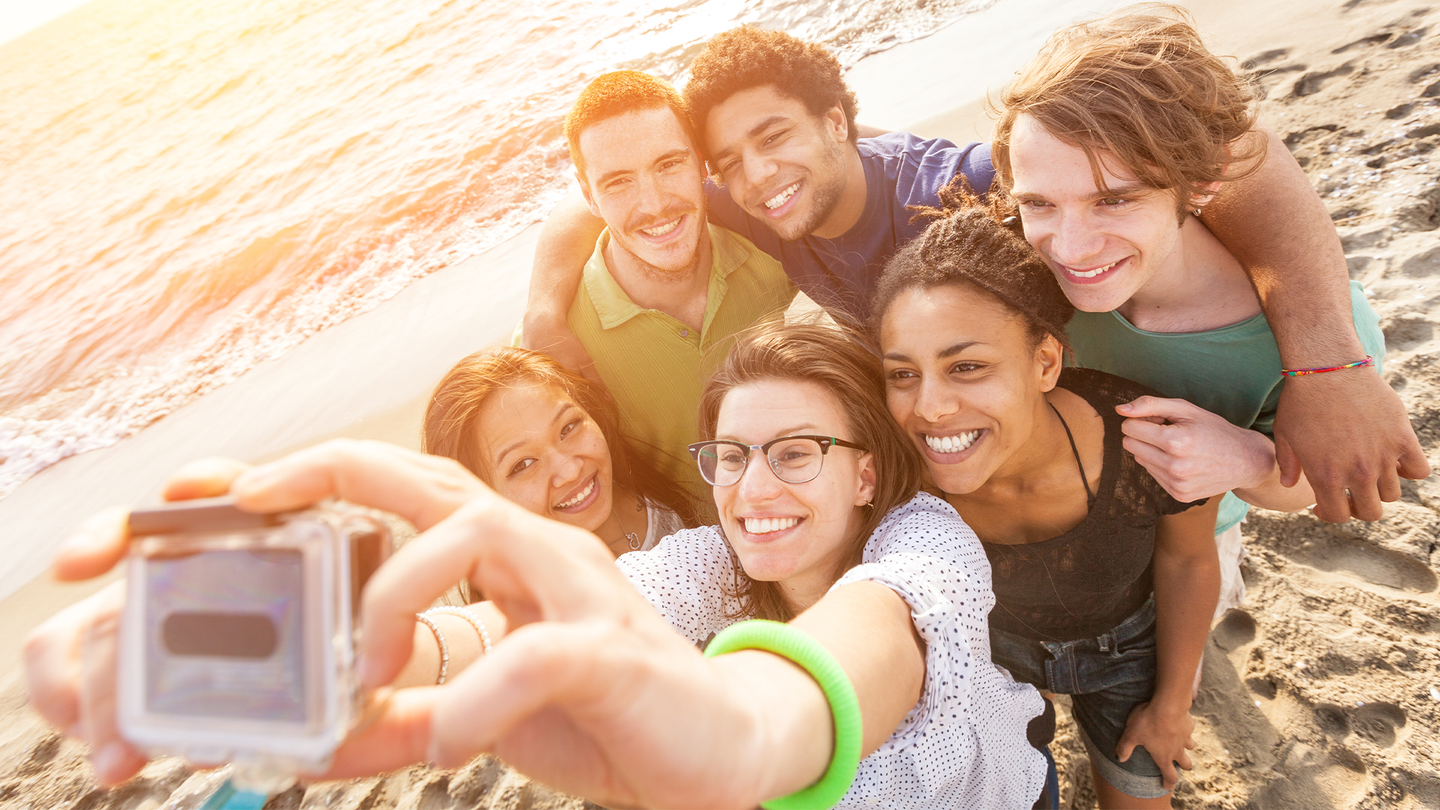Selfies are for memories, not just for vanity
Third-person photography like selfies are not always as superficial as they can seem.

Love them or loathe them, selfies aren’t going anywhere. Humans are not even alone in this ability to capture themselves in a moment— bears, and penguins have from time to time posed for a self portrait. These third-person images are an easy way to satisfy the social pressures of “pics or it didn’t happen” or the dreaded FOMO with one single click, but they may also have a deeper psychological component.
[Related: Understanding the weird Biden-Carter photo could help you take better selfies.]
New research published April 27 in the journal Social Psychological and Personality Science suggests that people use first-person photography—a photo of the scene from their own perspective—when they want to document a physical experience, but opt for third-person photos like selfies where you are in the scene to capture the deeper meaning of an event.
Earlier research into the psychology of selfies focused on how the photo-taker wants to present themselves, while this new research takes people capturing memories into consideration.
“Not only do we find that most people take both types of photos in different situations, but that people also differ across situations in whether their goal for taking photo is to capture the physical experience of the moment or the bigger meaning of the moment in their life,” said Zachary Niese, study co-author and psychologist at the University of Tübingen in Germany, in a statement.
The research included six studies involving over 2,100 participants. The team found that when the goal of a photo is to capture meaning, they’re more likely to take a selfie and that they find more meaning looking back at their own third-person photos compared with first-person.
People also tend to like their photos more when the perspective matches their goal for taking the photo.
“Taking and posting pictures is a part of everyday life for many people. While there is sometimes derision about photo-taking practices in popular culture, personal photos have the potential to help people reconnect to their past experiences and build their self-narratives,” said Niese.
The authors warned against the assumption that photos taken from first or third person perspectives are better than the other. Their analysis shows that the most effective perspective depends more on an individual’s goal in the moment—whether that be to capture a physical experience like taking a tour of a museum or the deeper meaning of an event like a wedding or graduation.
[Related: Take better selfies with these lighting and angle tips.]
Going forward, the more understanding an individual has of the goal when taking a picture and the role that perspective plays in the photos and make amateur photographers better at preserving memories for later.
“People’s photo-taking practices have the potential to serve a more fundamental human motive to develop and understand our sense of self, both in terms of the experiences in our life as well as their bigger meaning,” said Niese.